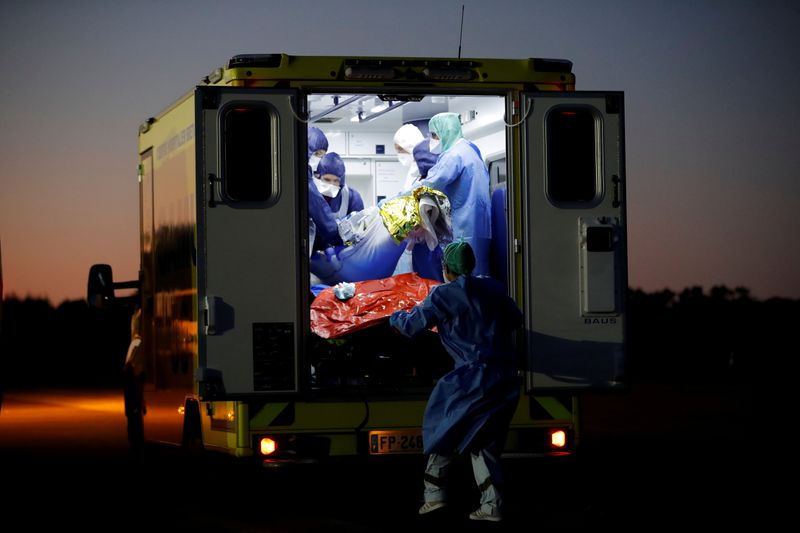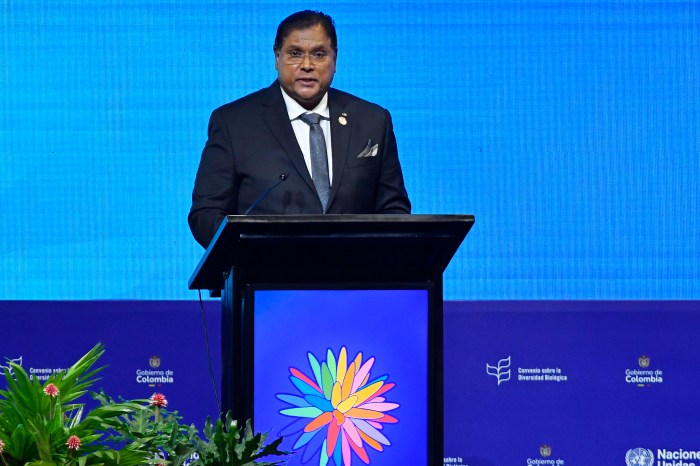(Reuters) – Here’s what you need to know about the coronavirus right now:
Questions over AstraZeneca trial data
Britain gave AstraZeneca’s COVID-19 vaccine a vote of confidence on Friday when it asked its regulator to assess it for a rollout after experts raised questions about trial data and the company said it might run another study to gauge the shot’s efficacy.
The UK government has secured 100 million doses of the vaccine, developed by AstraZeneca and Oxford University, the most supplies it has ordered of any shot to fight the pandemic.
Scientists have raised doubts about the robustness of results showing the shot was 90% effective in a sub-group of trial participants who, by error initially, received a half dose followed by a full dose.
AstraZeneca said the administering of the half dose had been reviewed and approved by independent data safety monitors and the UK regulator, adding that the regulator publicly confirmed there was “no concern”.
South Korea battles surge in symptomless cases
Asymptomatic COVID-19 patients are driving a surge in new cases in South Korea, frustrating efforts to control transmission by the East Asian country which managed to keep infections under control in previous outbreaks.
South Korea reported 569 new cases in the 24 hours ending Thursday midnight, a level unseen in nearly nine months, as it grapples with the third wave of the pandemic that appears to be worsening despite tough new social distancing measures.
With young people at the centre of the surge, health authorities estimate asymptomatic patients now account for 40% of total infections, up sharply from 20-30% in June.
Infections in Germany surpass 1 million
The number of COVID-19 infections in Germany exceeded the 1 million mark and the daily death toll hit a record of 426, data from the Robert Koch Institute for infectious diseases showed on Friday.
The figures reflected the reality that Germany was at best keeping new infections stable, which Chancellor Angela Merkel has said would not suffice to ease restrictions and eliminate the risk of overwhelming hospitals.
The number of confirmed cases increased by 22,806 to 1,006,394.
Russia to vaccinate armed forces
Russia plans to vaccinate more than 400,000 military personnel against COVID-19, Defence Minister Sergei Shoigu said on Friday, as authorities reported a record 27,543 new cases.
Russia, which is working on several vaccines against the virus, has seen a surge in infections since September but authorities have resisted imposing lockdowns, relying instead on targeted measures in certain regions.
Indian pharmaceutical company Hetero will manufacture more than 100 million doses of Russia’s Sputnik V vaccine per year under terms of a deal with Russia’s RDIF sovereign wealth fund unveiled on Friday.
Australian hotspot goes 28 days without an infection
Australia’s second-largest state, Victoria, once the country’s COVID-19 hotspot, said on Friday it has gone 28 days without detecting any new infections, a benchmark widely cited as eliminating the virus from the community.
The state also has zero active cases after the last COVID-19 patient was discharged from hospital this week, a far cry from August when Victoria recorded more than 700 cases in one day and active infections totalled nearly 8,000.
The spread of the virus was only contained after a lockdown lasting more than 100 days, leaving some 5 million people in Melbourne, Australia’s second largest city, largely confined to their homes.
(Compiled by Linda Noakes; Editing by Mark Heinrich)





















